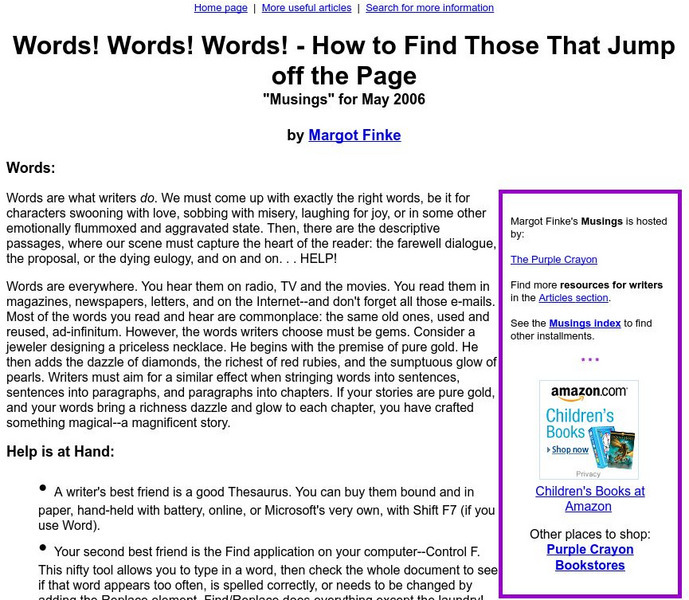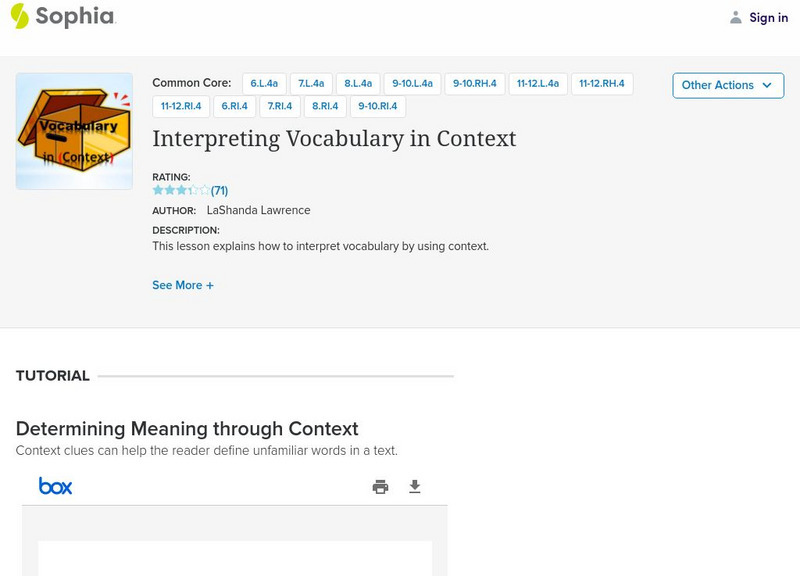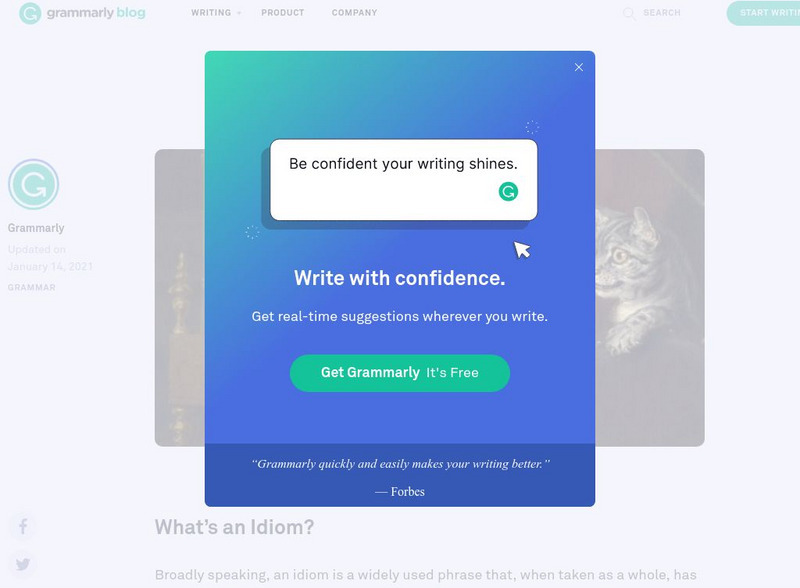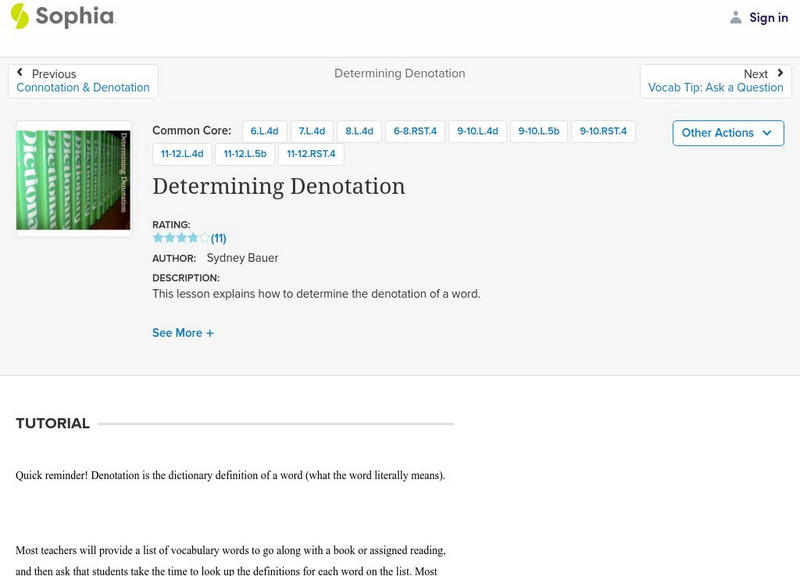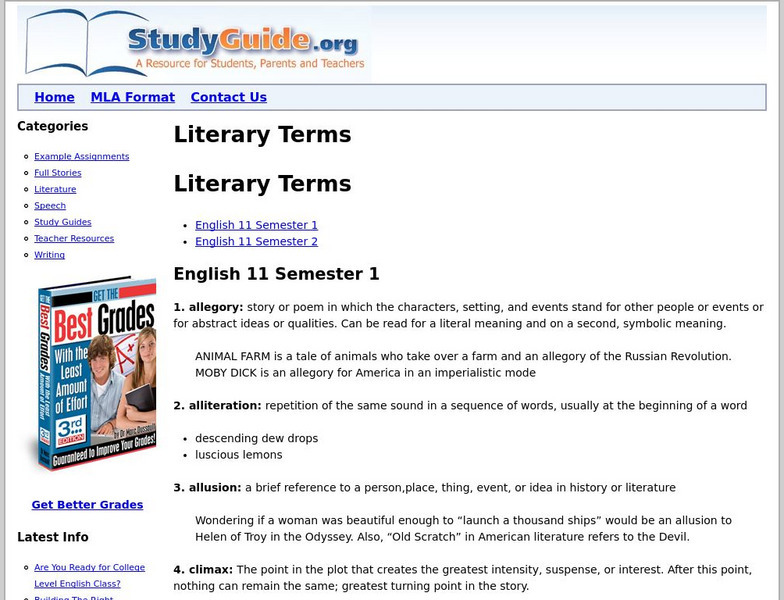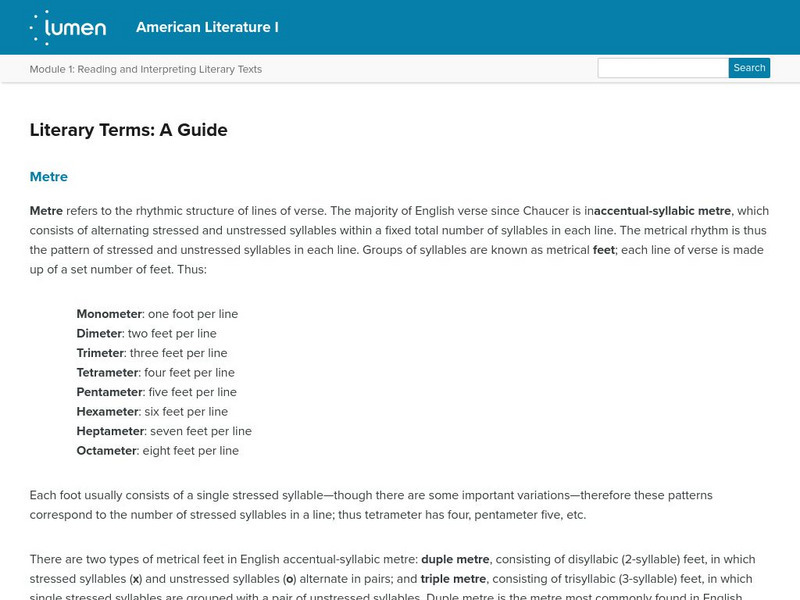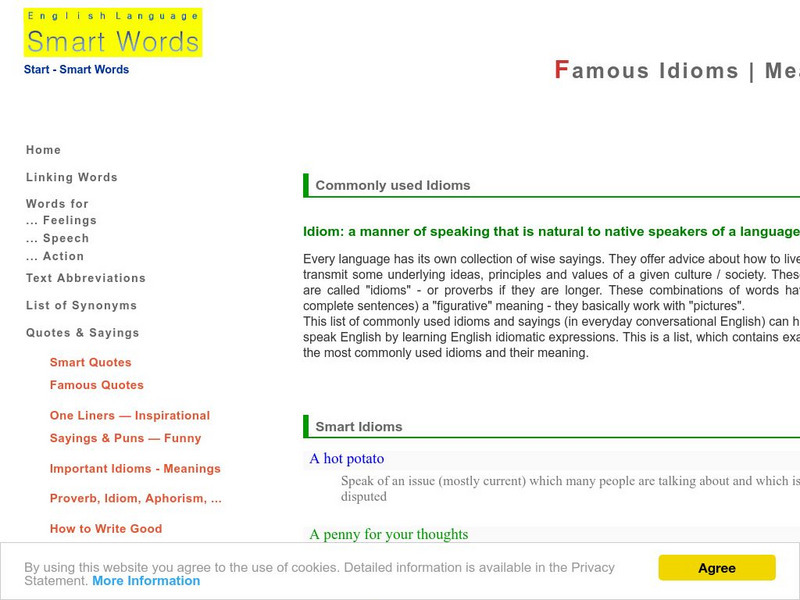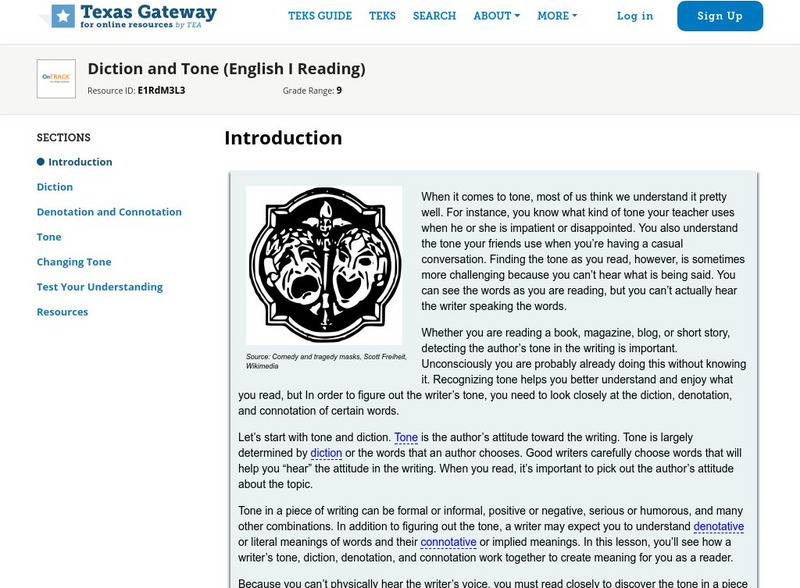Hi, what do you want to do?
University of Victoria (Canada)
The U Vic Writer's Guide: Literary & Rhetorical Terms
A comprehensive list of literary terms from the University of Victoria that will give students definitions and examples of how they are used. Terms are sorted by category. L.11-12.4d Verify meaning
Cengage Learning
Gale: Free Resources: Glossary of Literary Terms
An extensive a-to-z glossary of literary terms from major educational publisher Gale.
Harold D. Underdown
How to Find Words That Jump Off the Page
An excellent resource for a writer struggling to come up with the exact words for which they are looking. Includes very helpful advice and information. Aimed at writers of children's literature, but can also apply to other genres.
Sophia Learning
Sophia: Connotation: Lesson 2
This lesson introduces connotation and provides examples. It is 2 of 3 in the series titled "Connotation."
Sophia Learning
Sophia: Interpreting Vocabulary in Context
This lesson explains how to interpret vocabulary by using context. L.9-10.4a Context/Meaning, L.11-12.4a Words/Context
Grammarly
Grammarly Blog: Idioms and Phrases
An explanation and examples of idioms and how to use context clues to understand their meanings.
Grammarly
Grammarly Blog: Idioms and Their Meanings
An explanation and examples of idioms and their geographic ties.
Washington State University
Washington State University: Epigram/epigraph/ Epitaph/epithet
This site gives a definition of the word "epigram." It also includes a few examples of epigrams.
Sophia Learning
Sophia: Evaluating the Connotation
This lesson focuses on evaluating the connotation of a vocabulary word. It defines connotation and gives an example. It details three steps: read the word in context, determine the tone of the overall reading, and compare the tone with...
Sophia Learning
Sophia: Selecting Topics for Literary Analysis
A series of three PDF documents providing definitions of commonly used terms when preparing to write a literary analysis, explaining how to comment on a literary text, and demonstrating the process of analyzing the literary text "Hills...
Sophia Learning
Sophia: Determining Denotation
This lesson explains how to determine the denotation of words; it defines denotation and offers a plan of action: look up the word in the dictionary, read all meanings paying attention to parts of speech, and compare each of these...
PBS
Wnet: Thirteen: I Have a Metaphor
This instructional activity not only examines the message of Dr. King, but also the words themselves. This is a instructional activity in identifying the literary devices that he used in his "I Have a Dream" Speech. It will introduce the...
Other
Study Guide: Literary Terms: English 11
This is a glossary of literary terms designed for English 11: semester 1 and semester 2.
Other
Teengagement: Targeted Intervention: Word Choice Shapes Meaning and Tone
In this instructional activity, students interpret how words are used in a literary text and examine how word choice affects meaning and tone. A sample analysis of a poem is presented, terms are defined, and question stems for assessment...
Texas Education Agency
Texas Gateway: Reference Materials: Printed and Electronic
You will learn how to use dictionaries, glossaries, and thesauri in order to determine meanings of words and phrases, including their denotations, connotations, and etymologies.
Texas Education Agency
Texas Gateway: Denotation and Connotation (English Ii Reading)
You will be able to distinguish between the denotative (dictionary) meaning of a word and its connotative (emotions or associations that are implied rather than literal) meaning. L.9-10.5b nuances
University of Kentucky
Kentucky Classics: A Glossary of Rhetorical Terms With Examples
Rhetorical terms are defined on this site by the Kentucky Division of Classics. With sentence examples of each in English and Greek. Also related links to Perseus.
Lumen Learning
Lumen: Reading and Interpreting Literary Texts: Literary Terms: A Guide
This is a guide to poetic literary terms such as meter and an explanation of several types of meter, types of stanzas, types of rhyme, etc.
Lumen Learning
Lumen: Rhetorical Reading: Read Strategically: Diversify Your Vocabulary
This lesson focuses on strategies to diversify and retain new vocabularies such as reading a variety of types of writing and learning roots, suffixes, prefixes, and the etymology of words.
Lumen Learning
Lumen: Writing Skills: Tone, Language, and Appeal
This lesson plan focuses on using tone, language, and appeal to recognize and evaluate rhetorical approaches to building common ground. RI.9-10.4 word meanings/impact of choice
Other
Smart Words: Famous Idioms and Meaning
This is a list of the 50 most commonly used idioms and their meanings.
Other
University of North Carolina: Glossary of Literary Terms
This site is provided for by the University of North Carolina at Pembroke. Over forty literary terms defined by college students, each with thorough examples.
Texas Education Agency
Texas Gateway: Literary Text: Diction and Tone
This lesson deals primarily with diction and tone and how to recognize them in your reading. Tone is largely determined by diction or the word choices a writer makes. The process of choosing the right word involves denotation and...
Texas Education Agency
Texas Gateway: Diction and Tone (English I Reading)
In this lesson, you'll see how a writer's tone, diction, denotation, and connotation work together to create meaning for you as a reader.







